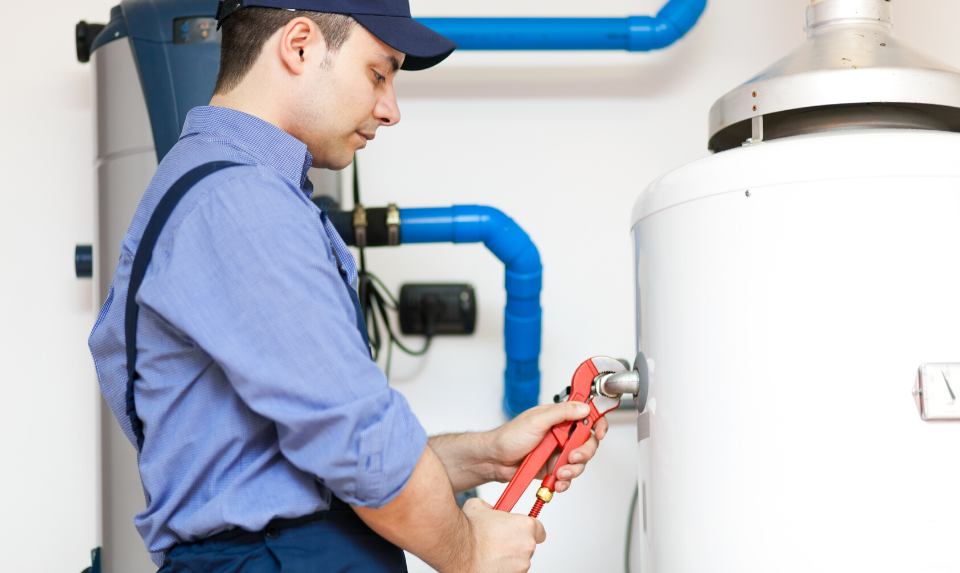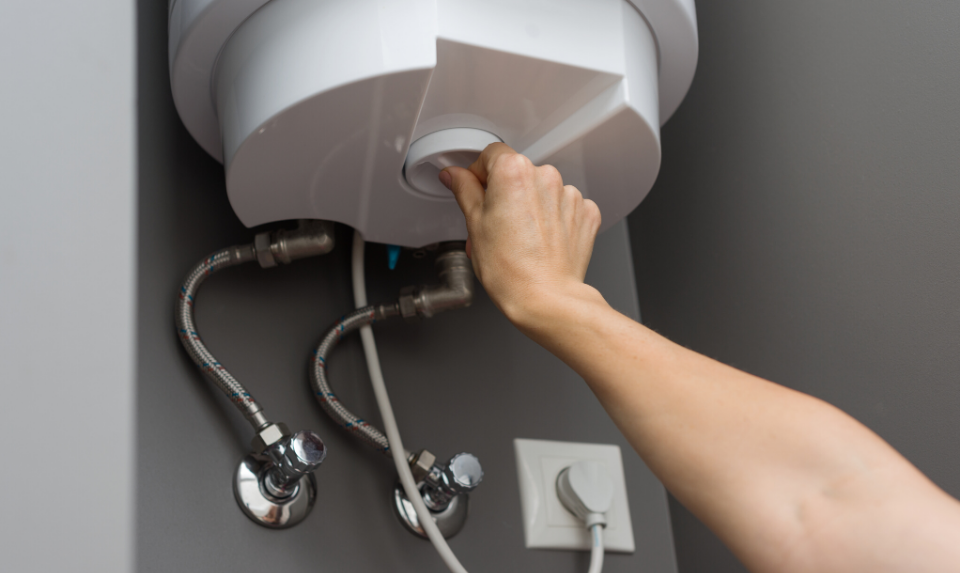The Dangers of a Water Heater Leak
Water heaters usually operate well under most conditions with regular care, cleaning, and maintenance, but as with nearly any home appliance, problems can happen. One such issue with water heater is leakage, either due to a corroded water tank, disconnected valves, or even just condensation during cold temperatures. Numerous dangers are associated with a water heater leak.
What Happens if My Water Heater is Leaking?
A water heater leak, very similar to any other problem in homes costs money, inconveniences you, and causes damage. However, unlike typical plumbing leaks, a leaking water heater has the potential to be dangerous and even deadly. Here is everything you need to learn to address a leaking water heater in a safe, economical, and accurate manner.

Is Your Water Heater Leaking?
Water heaters are known for creating the illusion of a leak. Your water heater will typically have many other plumbing pipes, fixtures, and elements surrounding it that could be leaking. So before jumping to outcomes, clean up any standing water and carefully examine the surrounding canals and other plumbing elements close to your water heater.
If the small puddle of water never returns, you have nothing to worry about because these pools are usually caused by condensation. Water heaters and their surrounding parts are prone to condensation, which over time, can gather and build a puddle on your basement floor. But, if the pool does consistently return and no sources can be recognized, your water heater is most likely the cause of the leak.
Turn Off Power
Once you discover your water heater is the cause of a leak, whether, by close examination or a specific hole, it is suggested that you turn off the power supply to your water heater.
How to Turn Off an Electric Water Heater
Go to your home’s circuit breaker box and switch off the breaker for your electric water heater.
How to Turn Off a Gas Water Heater
On your water heater, there should be an on/off switch or dial managing the controls for your water heater.
Turn Off Water
Usually set a 125° F, the water within your water heater is dangerous and can end in serious injury from just indirect contact. It is necessary that after turning off the power to your water heater that you turn off any water flow as well to guarantee your safety.
Turn off the cold water shut-off valve located just above your water heater as required by law. Be sure you can get to this valve safely if you have a notable leak as it can result in severe burns and injuries. To avoid possible damage in the case of a substantial leak, locate the main shut-off valve and close it to stop any water flow to your water heater.
What is the Source of the Water Heater Leak?
Loose Fittings and Connections
Commonly known as the cold water inlet and hot water outlet connection, these fittings and links can be found attached to the top of your water heater. Fixing a leak here may just need tightening the joints and links or inexpensively replacing the cold water inlet and hot water outlet attachments.
Broken Drain Valve
The drain valve can leak due to use and deterioration over time. It is easy to fix and not a serious concern. Check your drain valve for any leaks near its point of connection to your water tank.
The Tank Itself
If no other source can be identified on the outside of your water heater, it is most likely an internal problem. Internal problems within your water heater are generally caused by age and deterioration and result in water leaking underneath the tank. The only fix to this problem is to replace your water heater with a new one.
What Happens If the Water Heater Leaks?
Potential Explosion
If the leak is caused by an accumulation of water, it should be checked by the temperature-pressure valve, which is intended to release excess water when pressure builds up in the water heater. If the water temperature is too high, the water pressure is too high, or the relief valve is damaged or broken, the pressure might build up in the tank, and the tank could possibly explode.
Broken Heating Element
A leak on an electric water heater is probably because of a broken or fractured heating gasket. If the heating element is assumed, turn off the water and power and remove water out of the water tank before restoring the gasket. Run hot water in a sink ere turning the power back on to the unit to stop additional injury to the heating element.

Bad Water
If the leak on a water heater is because of a rusty pipe, there is an added danger to the water supply, as water that is presented to rust may absorb rust and bacteria. This water will then be diffused throughout the home from the water heater, which gives users potentially bacteria harmful or chemicals in the water.
Property Damage
One of the most significant dangers of a leaking water heater is the damage around the walls and floor. This can start mold and can even trickle down to the foundation of the home, which can eventually weaken the foundation and lead to other difficulties. Any water around a water heater should be cleaned up completely as soon as possible, and the area should be observed well for potential mold or mildew that may grow as a result of a water heater leak.